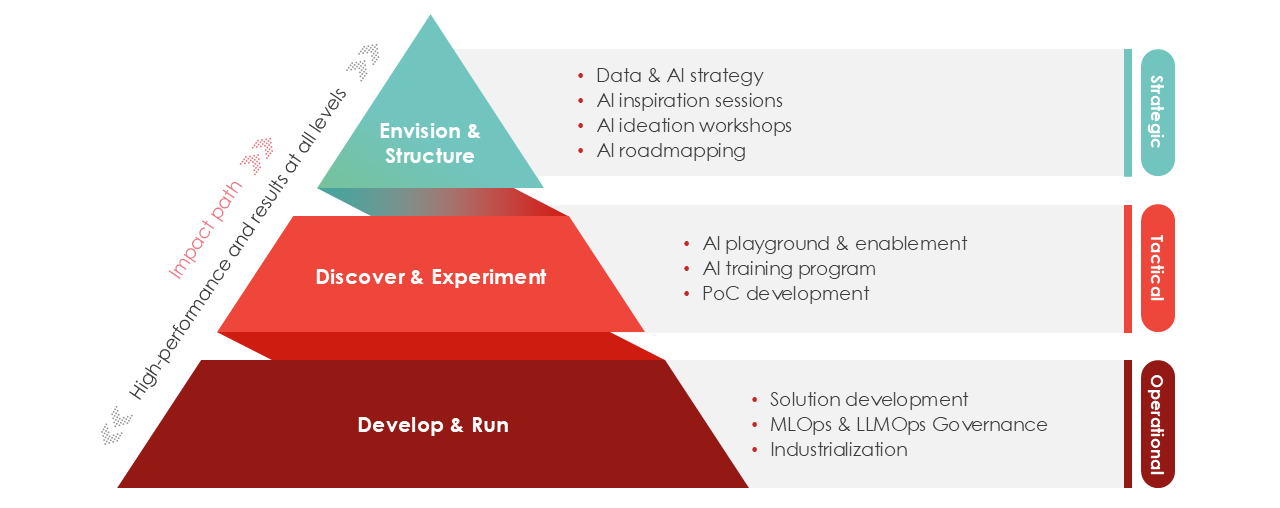
Our vision: the 4 pillars of AI
Organizations looking to leverage the full power of AI need a comprehensive overview of its many different aspects, from the strategic to the technological, and from the operational to the ethical and regulatory. That’s why, at delaware, we structure AI around 4 pillars, each of which requires different types of data and has its own, unique use cases.
-
Most organizations today sit on a treasure trove of structured and unstructured data, originating from sensors, machines, ERPs and other sources. Using artificial intelligence to gain valuable insights from that data can help to detect and reduce waste and inefficiencies or even prevent incidents from happening. Most organizations use AI mainly for this type of data-related cases.
-
Computer vision uses complex algorithms to extract information from images or videos. This makes it possible to automate human tasks, like visual quality inspections or workplace safety. It can automatically and accurately assess various product errors, identify dangerous situations quickly and much more. In this way, the technology helps to reduce waste, improve service levels and avoid injuries or unsafe situations.
-
Generative AI helps businesses enhance efficiency by automating tasks like content creation, product design, and customer interactions. By generating data, text, images, and even code, it speeds up processes and allows employees to focus on higher-value tasks. Moreover, generative AI can empower businesses to rethink their models, enabling innovations such as personalized customer experiences, rapid prototyping, and the development of entirely new products or services. This shift can open doors to fresh revenue streams and improved operational agility.
-
Autonomous agents are intelligent software systems that respond to user input and/or environmental conditions. Like digital assistants armed with expert knowledge and access to immense repositories of data, they plan and reason and are able to execute a range of tasks. Some examples of practical applications are customer service automation, automated financial trading, personalized shopping assistants, autonomous vehicles, automated optimization of shipping routes in supply chain management, content moderation, etc.





/close-up-man-with-vegetable-(1).webp?mode=autocrop&w=320&h=240&attachmenthistoryguid=e98d0ef6-5e83-4930-8070-d9153a0bceb8&v=&focusX=2560&focusY=529&c=7e551dd1b8495be63471537da67ffadc7b1085ec30c0324f197ef1d7b9e44422)
/GenAi-banner-3200x500-(1).webp?mode=autocrop&w=320&h=240&attachmenthistoryguid=12e7f669-85b5-4505-b24e-a81fbd32e055&v=&focusX=2676&focusY=293&c=c1608a0363522a1027f6ed16703e483d54211465fc05b7ad4b1ae4d59c2abda6)


/Website_Landingpage_new_DataAnalytics_1920x355-(1).webp?mode=autocrop&w=320&h=240&attachmenthistoryguid=f7c84915-cf28-4a9d-83a0-ba3a7f12e562&v=&focusX=557&focusY=151&c=d62544587aa601fd6356e8e13a967670c5729116d101f7e9a52bb095c3b63d68)